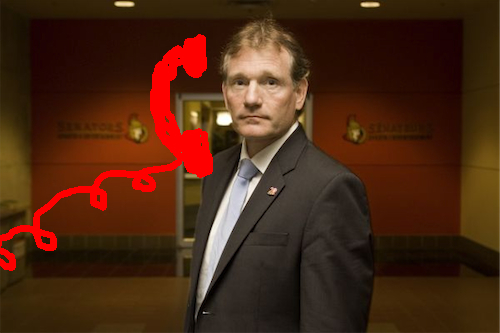It’s time to talk about Colt Lyerla. In the last week, the public has been up in arms over his questionable tweets about the Sandy Hook shooting being a conspiracy. It’s an opinion the Oregon athletic department said was “insensitive and offensive.” The statement was a simple way to reaffirm that the University of Oregon doesn’t agree with Lyerla’s ideas – not that I think anyone thought the university did. But aside from the shock value of Lyerla’s comments, the tweet situation brings to light another issue that’s constantly danced around in the world of sports news. What do we expect from our athletes?
In their statement, the university stated: “Though the University of Oregon Department of Athletics as well as the football program have social media expectations in place for our student-athletes, at times, personal opinions go well beyond what we expect from our students.” That would certainly be the case with Lyerla. But what is beyond expectation? What happens when athletes want to support a President, speak out against a law, or support an unpopular political movement?
Before I go on I should say that in no way do I support Lyerla’s opinion nor defend what he said. What I do defend is his right to say it.
I understand the reason for social media expectations. Athletes represent the school and the athletic department and therefore should express themselves with respect to said institution. The stakes are higher now. It’s no longer a matter of interviewing players before and after games, but now the story continues off the court, while journalists follow athletes on twitter and check their Facebooks, looking for the next break; waiting for someone like Colt to use a 140 character tweet to send the state into frenzy. In other words, it was always a great power and responsibility to be an athlete, but now that power and responsibility is much greater.
Rather than confront that power and perhaps use it, the public, the coaches, the teams, and schools prefer their students to shy away from that power. And maybe they should. Maybe athletes and public figures should be expected to keep their politics and unpopular opinions to themselves. And yet I firmly believe that expectation can only be a bad thing.
Great things have happened from athletes taking a stand. Look at all the charities, causes, and foundations supported by sportsmen taking a moment to recognize that they can use their power for something outside of themselves. But it’s not just giving money and helping that fuels a cause. What about John Carlos and Tommie Smith raising a fist in Mexico City? What about Muhammad Ali walking away from boxing rather than fight in Vietnam? Those things weren’t popular. Those moves and their words sparked outrage. But they were well within their rights and as we look back they were political stances worth boasting and fighting for. More importantly rather than let the world happen around them and shy away from their power and the public, they took a step forward.
But where is that now? Where are the Bill Waltons leading a campus protest against the Vietnam war and being picked up from jail by coach? They’re hiding and we’ve scared them. In a Sports Illustrated spread last summer about athletes and activism, former Yankee pitcher Jim Bouton called us, “The scared generation.” At the university level, especially, that has become the case. College is a place that breads ideas, protest, learning, and argument. Maybe you say, that’s great, let them do this in quiet and out of the public eye. I propose they experience the First Amendment like every other American. People will disagree, the media may attack, but at least they’ve spoken. At least they’ve stopped hiding.
Colt Lyerla’s tweet certainly wasn’t a stand for a popular cause or necessarily something many people are proud of. But he should always be allowed to say it. And I hope that more athletes, whether their opinions are popular, absurd, offensive, or unpopular, continue to share what’s on their mind. After all, we never know who will be glorified as the next athlete with a fist in the air or the face of the next great cause. Unfortunately, with the backlash of Lyerla’s brush with free speech, it may be quite some time until others dare to be more than the scared generation.
Samantha Saldivar is on Twitter. Follow her at @SammySaldivar
Add The Sports Daily to your Google News Feed!
